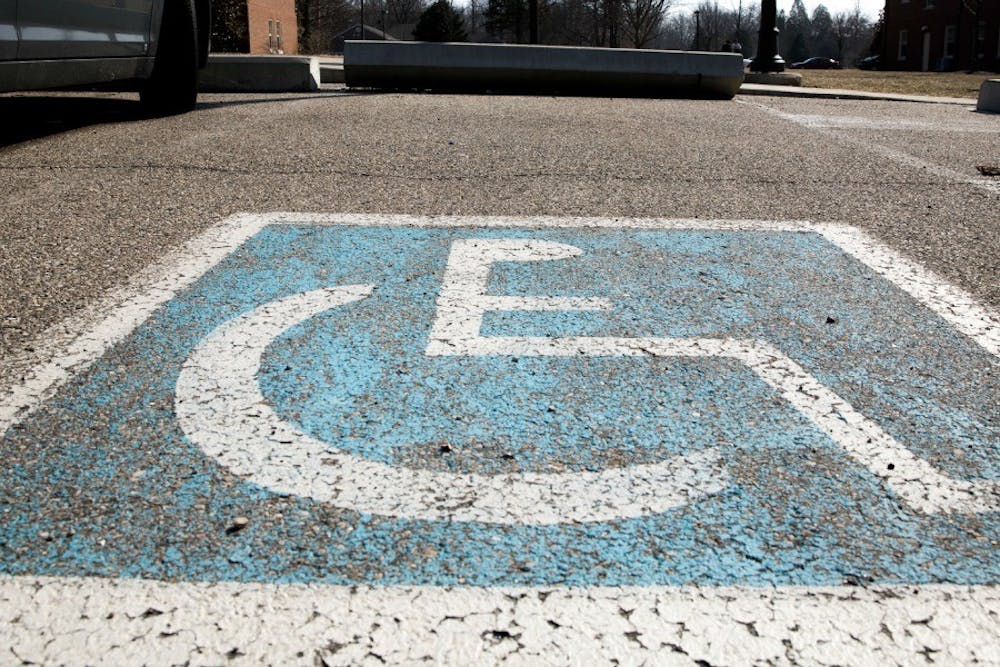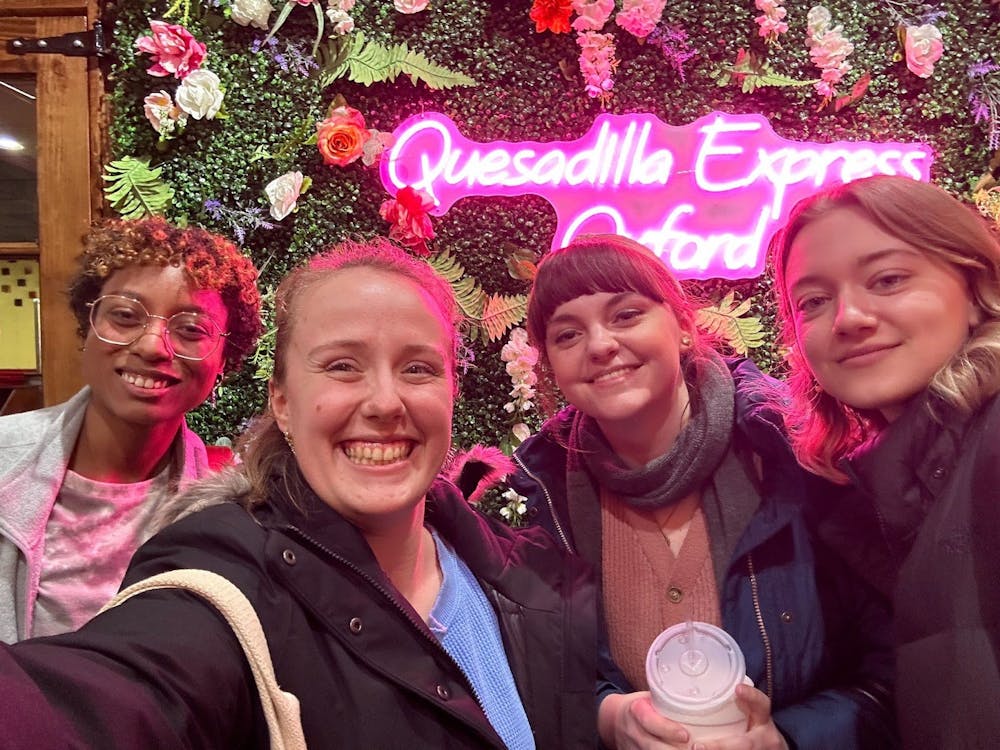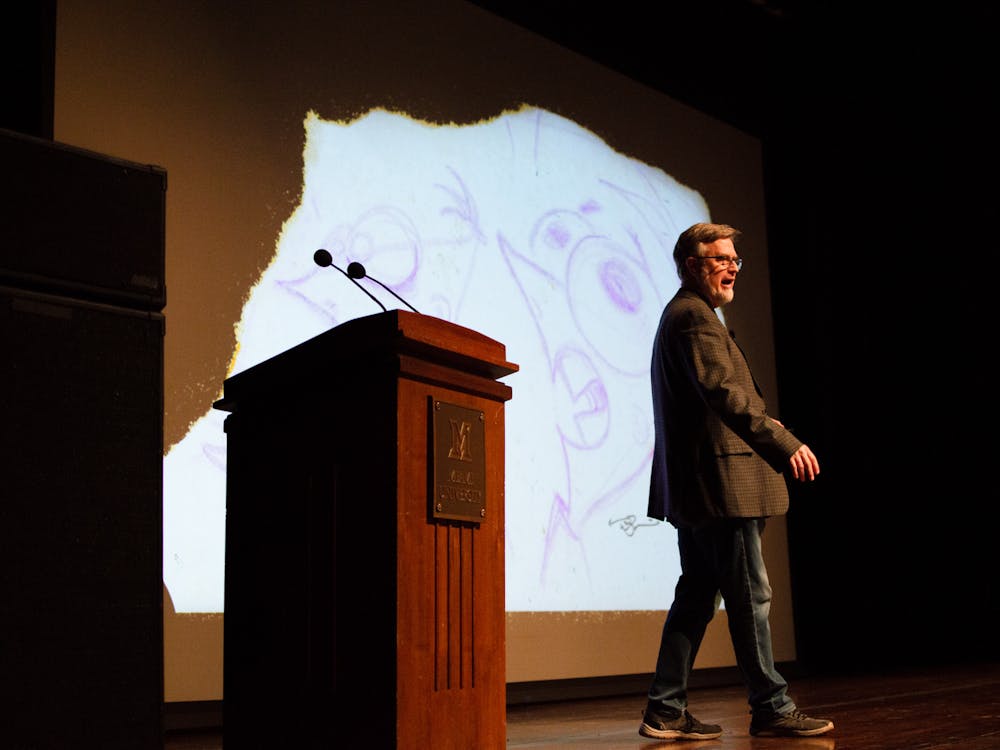By Bonnie Meibers and James Steinbauer, For The Miami Student
This week, the Sign Language and Deaf Awareness Club hosted Silence and Diversity Week at Miami University in order to raise awareness for deaf and handicapped culture at Miami.
Kaitlyn Gilfert, the president of the Sign Language and Deaf Awareness Club, hoped the Silence and Diversity Week would educate students and prevent prejudice and discrimination toward others with disabilities.
"A lot of people see a person with a hearing aid and think that they're not intelligent just because they can't hear," said Kate Randall, vice president of the Sign Language and Deaf Awareness Club.
Some events this week included a lecture by Harilyn Rousso on "invisible disabilities" like anxiety and dyslexia, performances by the National Theatre of the Deaf, a dance competition and an open mic night for any signer who wished to perform. Both Gilfert and Randall made appearances, singing along to songs by Taylor Swift and Ed Sheeran.
Silence and Diversity Week comes a little more than a year after Miami zoology major Aleeha Dudley sued the university just before the spring of her senior year for denying her equal access to the university's programs and activities, in violation of federal law.
Dudley, who is blind, alleged that Miami violated Title II of the Americans with Disabilities Act (ADA) of 1990 and Section 504 of the Rehabilitation Act of 1973 by deliberately failing to make necessary modifications so that she could complete her coursework.
Three federal laws - the Individuals with Disabilities Education Act (IDEA), Title II of the ADA and Section 504 of the Rehabilitation Act of 1973 - address the obligations of all public schools to meet the communication needs of students with disabilities.
Dudley's case, which is currently ongoing in the U.S. District Court for the Southern District of Ohio, stated that Miami failed to do so. The university neglected its obligation to provide timely and adequate access to Braille textbooks, useful tactile graphics, course materials such as assignments, presentations and notes in an accessible format and trained assistants to allow full participation in class activities.
"The types of problems that Ms. Dudley was having are experienced by many students at other universities," Chris Danielsen, director of Public Relations for the National Federation of the Blind, said. "The universities that don't have these problems are more the exception than the rule at this point."
Universities, such as the University of Iowa, University of Kansas and Clemson University have created ADA compliance review task forces in order to solve their problems. Many others have reached settlements with the U.S. Department of Justice in regard to improving ADA compliance issues; however, Danielsen said that best agreements only require universities to examine whether the technology they purchase will be accessible for students with disabilities.
Miami stacks up well against other schools in the area on compliance with the ADA, according to Andrew Zeisler, director of Student Disability Services.
Enjoy what you're reading?
Signup for our newsletter
"When I go to national conferences, we are at least comparable to our colleagues," Zeisler said. "And we are doing some things better than other schools."
Miami University was the first university to have a captioning program, an instantaneous translation of spoken words into text, in 1994. The university is also renovating all residence halls to be compliant with the ADA and building new structures to be compliant with the ADA.
Zeisler said that by 2020 all buildings on Miami's campus would be made compliant with ADA standards.
Interpreters are provided for individuals and for public events, like commencement and the Tim Gunn talk last Monday, March 9. Students also have access to assistive listening devices and visual fire alarms, among other things.
"There are some accommodations, but they are not convenient," senior Speech Path and Audiology major Jamie Budhan said.
Most students agree that the university is willing to work with disabled students, but its efforts, for the most part, go unnoticed because the Miami does not widely publicize what amenities are available.
For instance, Wilks Theatre in Armstrong Student Center is equipped with hearing devices, but one must know to ask about them to have access to them.
"The university is doing a lot on their part, but students aren't aware," Gilfert said.
According to Zeisler, the help and support systems are there, students just have to reach out and ask for them.
Both the university and students concur that disability is something that calls for more attention and more discussion on college campuses.
"We need to be open to differences and celebrate those differences," Zeisler said. "Disability is the one thing that crosses all cultures, all races, and all orientations."




